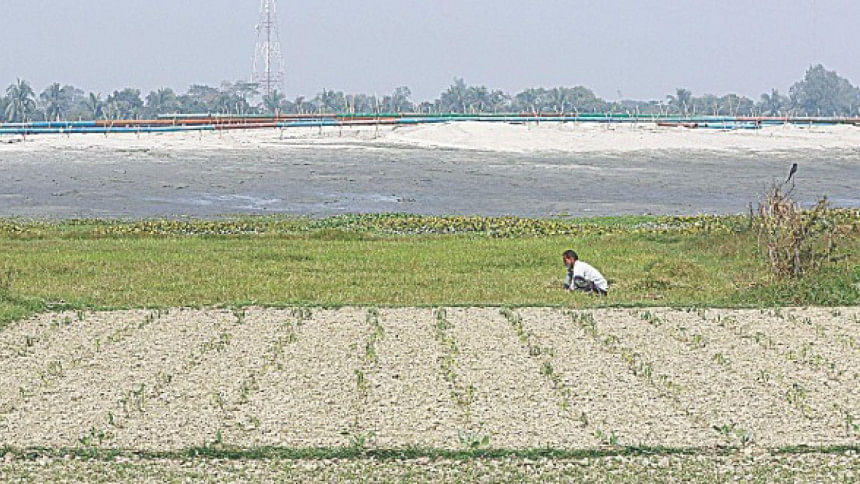Earth filling: HC releases full text of Sonargaon case verdict, asks for establishing wetlands ministry

Declaring grabbing and filling up water bodies, wetlands and farmlands by two companies in Narayanganj's Sonargaon upazila "illegal", the High Court has directed the authorities concerned to formulate a specific law and to establish a separate ministry to protect and develop wetlands across the country as public property.
The two companies owned by businessman Md Noor Ali grabbed and filled up water bodies, wetlands and farmlands to set up a resort and an economic zone.
In the full text of the verdict, the HC also ordered the government to ban plastic bags in the country and to construct separate cycle lanes on all roads and highways in order to protect the environment.
At the same time, the court has given its opinions on 14 issues in order to develop Bangladesh as an environment-friendly country.
It asked the authorities to formulate a masterplan to make Bangladesh cent percent self-reliant in renewable fuels and to establish a separate ministry in this regard.
The HC bench of Justice Md Ashraful Kamal and Justice Razik-Al-Jalil came up with the 132-page full text verdict which was released yesterday (July 18).
On December 2 last year, the HC bench had delivered the verdict following a writ petition filed by Bangladesh Environmental Lawyers Association (Bela), challenging the activities of two companies -- Unique Property Development Ltd (UPDL) and Sonargaon Economic Zone (SEZ), owned by Noor Ali, in six moujas near the banks of the Meghna in Sonargaon upazila.
In the full text of verdict, the HC declared the inaction of the authorities concerned of government to prevent the companies from the grabbing and filling up water bodies, wetlands and farmlands in the area "illegal".
The court asked the government to take necessary steps to give a one-hour class on importance, management and development of wetlands every two months to the students at all academic institutions of the country.
The government has also been asked to form an authority to protect and preserve the world heritages like Sundarbans, the historical mosque in Bagerhat and Paharpur Bouddha Bihar.
The court asked the authorities concerned to geographically locate all wetlands of the country through satellite and list and display them in the public places at all unions, upazilas and districts to aware people.
In the full text, the HC asked the local administrations to arrange rallies, seminars and other awareness programmes about the necessity and efficacy of wetlands.
The court asked the Department of Environment and the local administration to jointly assess the agricultural and wetlands of the six mouzas that were encroached and filled up by Noor Ali's companies and to set the amount of compensation that would be paid to the people affected.
The mouzas are Pirojpur, Jainpur, Chhoyhissa, Char Bhabonathpur, Batibandha and Ratanpur moujas.
The court also directed the local administration to restore the agricultural and wetlands to their original state within six months by removing sand after realising the cost from the companies.
The HC bench made it mandatory for attaching an environmental clearance certificate with an application filed by an individual or a company seeking permission to establish an Economic Zone.
It ordered the government to include Ecocide (hurting and killing the biodiversity and wildlife) as an offence in the International Crimes Tribunal Act, 1973 under which the war crimes committed during the country's 1971 Liberation War are tried and punished.
The HC judges congratulated media and writ petitioner Bela for their effective roles in protecting and improving the environment including wetlands in the country.
Officials concerned have been ordered to send the copy of the HC verdict to all the authorities concerned including Prime Minister Sheikh Hasina for taking necessary steps.

 For all latest news, follow The Daily Star's Google News channel.
For all latest news, follow The Daily Star's Google News channel. 



Comments